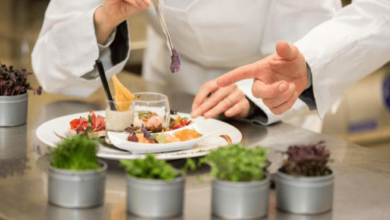How can riders prepare mentally for competitive events?

Introduction
Competing in any event, particularly riding, demands not just physical skill and endurance but also mental fortitude. Riders face unique psychological challenges that can significantly impact their performance. From dealing with anxiety to maintaining focus, mental preparation is as crucial as physical training. In this comprehensive guide, we’ll delve into various strategies to help riders prepare mentally for competitive events, ensuring they perform at their peak when it matters most.
Understanding the Mental Challenges of Competitive Riding
Competitive riding presents several mental challenges. Riders must manage performance anxiety, maintain concentration, and stay motivated despite setbacks. Understanding these challenges is the first step toward effective mental preparation.
The Importance of Mental Preparation in Riding
Mental preparation can be the difference between winning and losing in competitive riding. It helps riders stay calm under pressure, make quick decisions, and recover from mistakes. Let’s explore why mental preparation is so crucial.
Building Confidence
Setting Realistic Goals
Setting realistic, achievable goals is essential for building confidence. Riders should focus on incremental progress and celebrate small victories.
Positive Self-Talk
Positive self-talk can significantly impact a rider’s confidence. Replacing negative thoughts with positive affirmations helps maintain a positive mindset.
Developing Focus and Concentration
Mindfulness Practices
Mindfulness practices like meditation can enhance a rider’s focus and concentration. These practices help riders stay present and avoid distractions during competitions.
Visualization Techniques
Visualization involves mentally rehearsing a successful performance. This technique can help riders feel more prepared and confident when they compete.
Managing Performance Anxiety
Breathing Exercises
Breathing exercises are a simple yet effective way to manage anxiety. Techniques like deep breathing can help calm the mind and body before and during competitions.
Pre-Competition Routine
Establishing a pre-competition routine can help riders manage anxiety. Consistency in routine creates a sense of familiarity and control.
Maintaining Motivation
Creating a Support System
Having a strong support system is vital for maintaining motivation. Family, friends, coaches, and fellow riders can provide encouragement and support.
Setting Intrinsic and Extrinsic Goals
Balancing intrinsic (personal satisfaction) and extrinsic (awards, recognition) goals can keep riders motivated. This balance helps sustain long-term commitment and passion for the sport.
Adapting to Adversity
Developing Resilience
Resilience is the ability to bounce back from setbacks. Developing resilience involves learning from mistakes and viewing challenges as opportunities for growth.
Mental Flexibility
Mental flexibility allows riders to adapt to changing conditions during a competition. This skill is crucial for dealing with unexpected challenges effectively.
Techniques for In-Event Mental Control
Staying in the Moment
Staying in the moment helps riders avoid dwelling on past mistakes or worrying about future outcomes. Techniques like grounding exercises can enhance present-moment awareness.
Managing Negative Thoughts
Riders can manage negative thoughts by challenging them and replacing them with constructive thinking. This process involves recognizing negative patterns and consciously shifting focus.
Recovery and Reflection Post-Competition
Reflective Practice
Reflective practice involves analyzing performance post-competition to identify strengths and areas for improvement. This practice aids in continuous growth and development.
Mental and Physical Rest
Mental and physical rest are essential for recovery. Adequate rest helps prevent burnout and ensures riders are ready for future competitions.
Integrating Mental Training into Physical Training
Holistic Training Approach
Integrating mental training into physical training creates a holistic approach. This integration ensures that riders develop both the mental and physical skills needed for competition.
Regular Mental Training Sessions
Incorporating regular mental training sessions into the routine helps reinforce mental skills. Consistency in practice is key to mental fortitude.
Tools and Resources for Mental Preparation
Working with Sports Psychologists
Sports psychologists can provide specialized guidance for mental preparation. They offer tailored strategies to enhance mental strength.
Mental Training Apps and Tools
Various apps and tools are available to support mental training. These resources provide convenient ways to practice mindfulness, visualization, and other techniques.
Case Studies of Successful Riders
Learning from the Best
Analyzing case studies of successful riders can provide valuable insights. Understanding their mental preparation strategies can inspire and guide other riders.
Adapting Strategies
Adapting successful strategies to fit individual needs is crucial. Each rider should customize their approach based on personal preferences and challenges.
Conclusion
Mental preparation is a cornerstone of success in competitive riding. By understanding the challenges, building confidence, managing anxiety, and staying motivated, riders can enhance their performance. Integrating mental training into daily routines, seeking support, and learning from successful riders are essential steps in this journey. With the right mental strategies, riders can face competitions with confidence and resilience.

FAQs
How can riders manage performance anxiety?
Breathing exercises and a consistent pre-competition routine can help manage performance anxiety. These techniques create a sense of control and calmness.
What are some effective visualization techniques for riders?
Effective visualization involves mentally rehearsing the entire performance, focusing on positive outcomes, and engaging all senses to create a vivid mental image.
Why is resilience important in competitive riding?
Resilience helps riders bounce back from setbacks and view challenges as opportunities for growth. It’s crucial for maintaining long-term motivation and improvement.
How can mindfulness practices benefit riders?
Mindfulness practices enhance focus and concentration by helping riders stay present and avoid distractions. Techniques like meditation and grounding exercises are beneficial.
What role does a support system play in a rider’s mental preparation?
A support system provides encouragement, advice, and emotional support, helping riders stay motivated and confident throughout their training and competitions.
How can reflective practice aid in a rider’s development?
Reflective practice involves analyzing performance to identify strengths and areas for improvement. It supports continuous learning and development, contributing to overall success.





